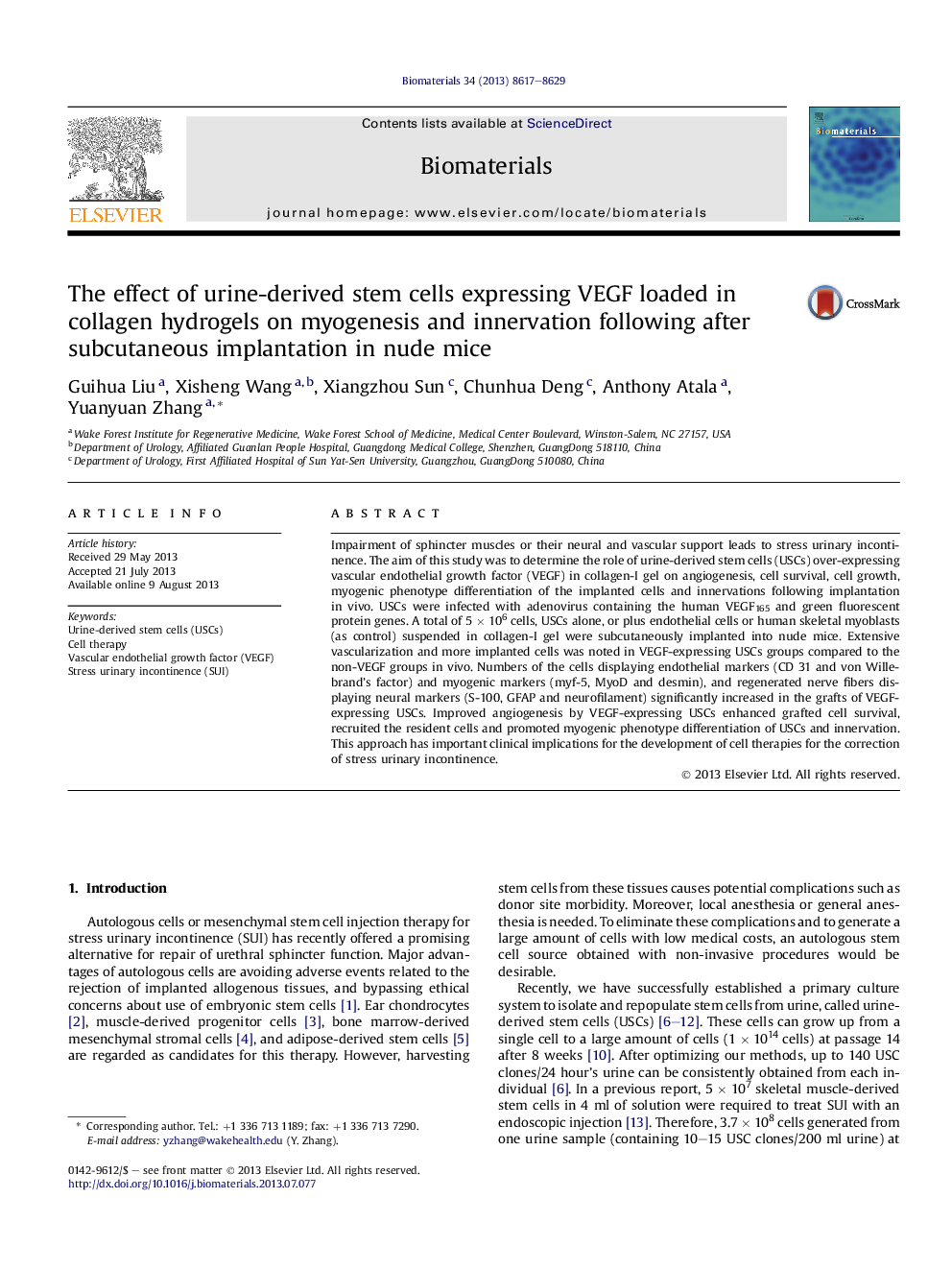| Article ID | Journal | Published Year | Pages | File Type |
|---|---|---|---|---|
| 10227983 | Biomaterials | 2013 | 13 Pages |
Abstract
Impairment of sphincter muscles or their neural and vascular support leads to stress urinary incontinence. The aim of this study was to determine the role of urine-derived stem cells (USCs) over-expressing vascular endothelial growth factor (VEGF) in collagen-I gel on angiogenesis, cell survival, cell growth, myogenic phenotype differentiation of the implanted cells and innervations following implantation in vivo. USCs were infected with adenovirus containing the human VEGF165 and green fluorescent protein genes. A total of 5 Ã 106 cells, USCs alone, or plus endothelial cells or human skeletal myoblasts (as control) suspended in collagen-I gel were subcutaneously implanted into nude mice. Extensive vascularization and more implanted cells was noted in VEGF-expressing USCs groups compared to the non-VEGF groups in vivo. Numbers of the cells displaying endothelial markers (CD 31 and von Willebrand's factor) and myogenic markers (myf-5, MyoD and desmin), and regenerated nerve fibers displaying neural markers (S-100, GFAP and neurofilament) significantly increased in the grafts of VEGF-expressing USCs. Improved angiogenesis by VEGF-expressing USCs enhanced grafted cell survival, recruited the resident cells and promoted myogenic phenotype differentiation of USCs and innervation. This approach has important clinical implications for the development of cell therapies for the correction of stress urinary incontinence.
Related Topics
Physical Sciences and Engineering
Chemical Engineering
Bioengineering
Authors
Guihua Liu, Xisheng Wang, Xiangzhou Sun, Chunhua Deng, Anthony Atala, Yuanyuan Zhang,
